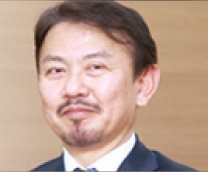「"We want to be the language localization platform of choice for Japanese companies."」
Smart meters are devices that take the metering of electricity, gas, water, and other public utilities and transmit that data wirelessly back to the base station. This obviates the need for meter-readers going out to the location, while accurate and real-time information on how much power a particular household is using can be gathered. After the Great East Japan Earthquake, energy management in society as a whole took on further importance and smart meters started to attract a great deal of attention in Japan. As for electricity, installing smart meters in all business establishments and households in early years of 2020s has already been stipulated in the strategic energy plan formulated by the national government. Through this initiative, power consumption and peaks in usage can be measured real-time, which will enable effective energy management. With the decision to install smart meters for gas also being made, it is expected that milestones for water will follow thereafter.
Headquartered in the U.S., Sensus is a company that provides communication infrastructure used on smart meters. The company has grown globally through the provision of FlexNet, the company's long range radio communication system to public utilities providers. Ranking in the top three of the global share for that market, Sensus has branched out into 42 countries and provided its services to over 10,000 utilities providers, as a proven track record. "Having gained authorization for a pilot trial of smart meters, we have been able to make a ground-breaking entry into Japan's public utility sector as a foreign firm. We believe we owe this success to our global achievement in this area," says Sensus Japan representative director and country manager Toshiyuki Naka, showing a quiet confidence.
The company's strength lies in its use of "point-to-multipoint (star) wireless networks" which control bi-directional radio communication between the base station and wireless devices like smart meters. Another unique point is Sensus' use of a dedicated low frequency bandwidth used by smart meters, which allows for stable transmission to areas previously unreachable by existing high frequency bandwidth networks, such as mountains, Tokyo's dense residential zones, and streets with skyscrapers. "Our communications infrastructure boasts high security standards that are internationally certified, and they are robustly protected against hacking and the leaking of personal information. We are uniquely poised to respond to many types of needs, including Japan's geographical particularities, demand for high safety and quality while keeping costs down," says Mr. Naka.
However, use of the dedicated low frequency bandwidth requires a license from the Japanese government, and successfully rolling out an infrastructure of this nature hinges on having strong business partners. Here one of the consulting services provided by Tokyo Metropolitan Government that Sensus utilized is business matching. By opening the door of dialogue with Japanese business partners, Sensus Japan received the support to further expand their business. Mr. Naka comments that "The success in entering Japan's public utilities market as a foreign entity depends heavily on having partners." Currently, the company has set up an office in Yurakucho, one of Tokyo's special economic zones, and the sites of its pilot test are located in Toyosu and Shin-Kiba area. One key reason is the excellent access to its business partners and the relevant government ministries.
"Japan is in transition to a new era of smart meters, which makes Japan's huge market potential very attractive to us," comments Mr. Naka. Deploying smart meters in public utilities not only contributes to energy-saving, but makes it possible for the application of the monitoring function such as keeping tabs on the elderly's living conditions; or the flexible pricing structures through the use of big data, which will liberalize the retail sale of electricity and gas, and other benefits. Wireless communication technology, for example, can also be deployed further such as for the remote control of streetlights.
In Q1 2015, Sensus Japan begins a pilot test inside the special economic zone to test the connectivity and functionality of long range radio communication technology for densely populated cities. "Going forward, we want to eliminate inefficiencies in time and power consumption by expanding our smart infrastructure solutions throughout Tokyo and Japan. We are excited to be able to contribute to improving Tokyo's QOL (Quality of Life) and competitiveness as a city," says Mr. Naka, enthusiastic about bringing "Tokyo as a smart city," to reality.
(Tami Kawasaki)

